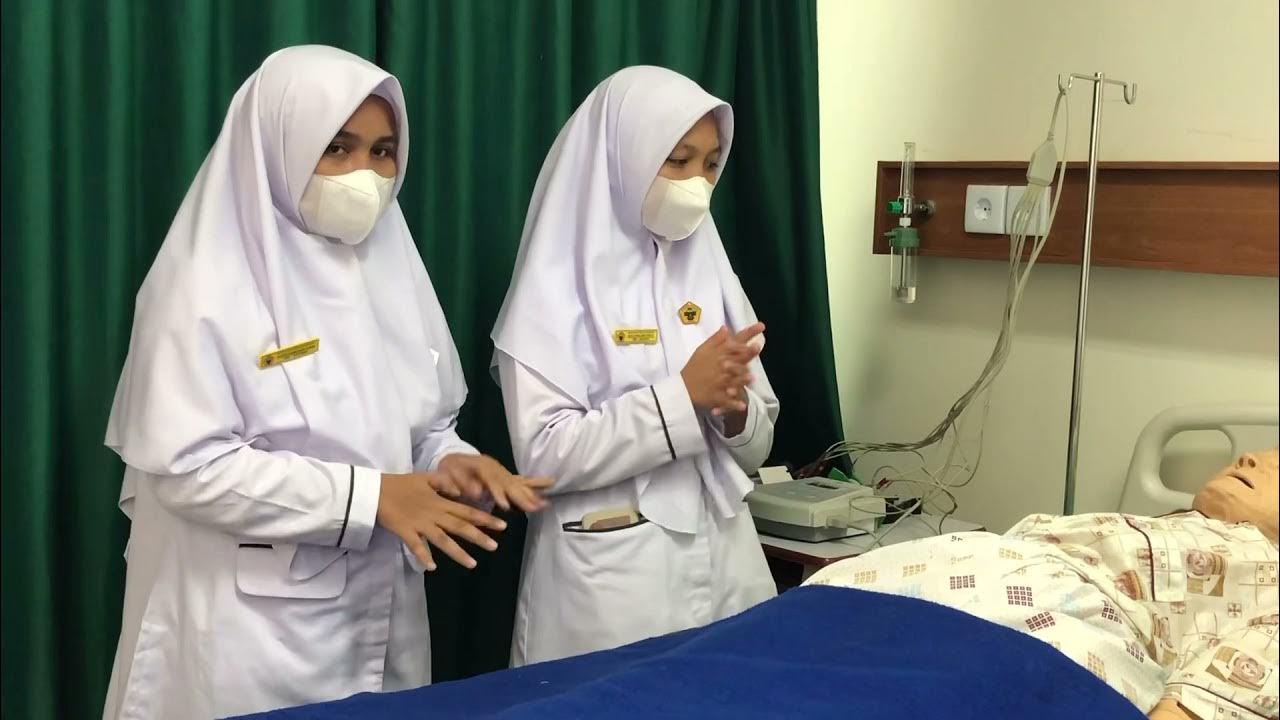Cardiovascular Examination | OSCE Guide | UKMLA | CPSA
Summary
TLDRThe script outlines a cardiovascular examination conducted on a patient named James Alexander, born on December 33, 1989. The examiner performs a thorough check, starting with a visual inspection, followed by palpating pulses in various areas, listening to heart sounds, and checking for any abnormalities. The examination includes assessing the pulse at the wrist, neck, chest, and back. James reports no pain, and the examination findings are normal. The examiner concludes by recommending additional tests, including a full peripheral vascular exam, an ECG, and blood pressure measurement to complete the evaluation.
Takeaways
- 😀 James Alexander, a 27-year-old male, is the patient being examined.
- 🔍 The examiner performs a cardiovascular exam, which includes looking, feeling, and listening to various parts of the body.
- 💡 The examination includes checking for a pulse in the neck, wrist, and elbow, as well as assessing the temperature of James' arms.
- 💪 The examiner checks for a collapsing pulse by raising James' right arm briskly while feeling his wrist.
- 👀 The examiner inspects James' face, eyes, and mouth as part of the assessment.
- 🫀 The examiner listens to James' heart sounds while feeling for a pulse in the neck and chest.
- 🫁 James is asked to take deep breaths and hold them during the chest and back examination.
- 👂 The examiner listens to James' chest from different positions, including lying on his left side and sitting forward.
- 🦶 The final step involves pressing on James' ankles to check for any abnormalities.
- ✅ The examiner concludes that James has a normal cardiovascular exam with no abnormalities detected and suggests further peripheral vascular examination, an ECG, and blood pressure measurement.
Q & A
What is the purpose of the examination being conducted?
-The examination is a cardiovascular exam, meant to assess the health of James's heart and circulatory system.
What is the initial step in the cardiovascular exam?
-The initial step is inspecting James from the end of the bed, followed by checking his fingernails and assessing the temperature of his arms.
Why does the examiner feel James's pulse in both wrists simultaneously?
-The examiner feels the pulse in both wrists at the same time to assess for any irregularities or differences in pulse strength, which may indicate cardiovascular issues.
What is a collapsing pulse, and how is it assessed?
-A collapsing pulse is a clinical sign of aortic regurgitation, and it is assessed by feeling the pulse in James's wrist while briskly raising his arm.
Why is James asked to hold his breath during the exam?
-James is asked to hold his breath so the examiner can listen to the sounds of his heart and neck vessels without interference from breathing sounds.
What areas of James's body are inspected or palpated during the exam?
-The examiner inspects James's fingernails, arms, chest, neck, abdomen, back, and ankles during the exam.
What heart sounds are identified during auscultation?
-The examiner identifies normal first and second heart sounds with no added sounds, indicating no abnormal heart murmurs.
Why does the examiner ask James to roll onto his left-hand side?
-The examiner asks James to roll onto his left side to better hear certain heart sounds, particularly those from the mitral valve, which are more audible in this position.
What additional tests does the examiner suggest to complete the cardiovascular assessment?
-The examiner suggests performing a full peripheral vascular exam, taking an ECG (electrocardiogram), and measuring James’s blood pressure.
What is the conclusion of the cardiovascular exam based on the findings?
-The conclusion is that James has a normal cardiovascular exam with no peripheral stigmata of cardiovascular disease, regular pulse, normal heart sounds, and no abnormal findings like heaves or thrills.
Outlines

Cette section est réservée aux utilisateurs payants. Améliorez votre compte pour accéder à cette section.
Améliorer maintenantMindmap

Cette section est réservée aux utilisateurs payants. Améliorez votre compte pour accéder à cette section.
Améliorer maintenantKeywords

Cette section est réservée aux utilisateurs payants. Améliorez votre compte pour accéder à cette section.
Améliorer maintenantHighlights

Cette section est réservée aux utilisateurs payants. Améliorez votre compte pour accéder à cette section.
Améliorer maintenantTranscripts

Cette section est réservée aux utilisateurs payants. Améliorez votre compte pour accéder à cette section.
Améliorer maintenantVoir Plus de Vidéos Connexes
5.0 / 5 (0 votes)






